Home \ Project News \ Bringing in New Ideas to Reduce the Use of Chemicals
Piloting Carbon Financing Development for Community Driven Climate Smart Agriculture in Yunnan is a project which is was started with the help of Blue Moon Fund and is operating in Xundian Hui and Yi Autonomous County in Yunnan. It is one of the several “Farmers’ Clubs” projects started by Humana People to People China. The name indicates that the farmers are organized in groups and are themselves the driving force in the projects. The project in Xundian started on the 1st of January 2015 and is a three year program. The Climate Smart Agriculture project is teaching farmers climate change adaptation strategies and advocates that they take action on reducing carbon emission. The project aims at improving the capacity of 400 farmers, local government institutions and other stakeholders for implementing and promoting sustainable agricultural land management and climate smart agriculture. The project aims as well at increasing household crop production and income. It also advocates for the restoration of soil health and local ecology through crop diversification, inter-cropping and plowing down crop residues to increase soil carbon, thereby decrease the need for fertilizer.
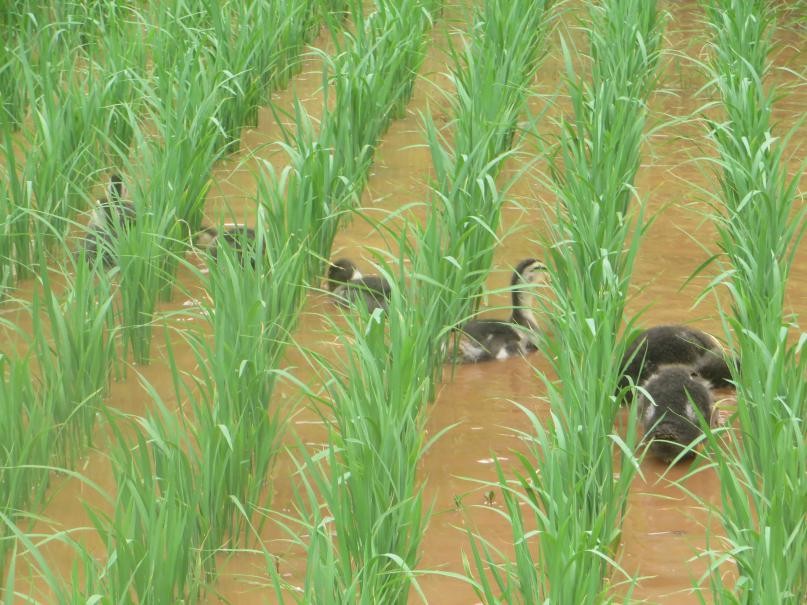
To reduce the use of chemicals and fertilizer farmers were mobilized to start breeding fish and ducks in the rice fields.
The project also cooperates with Yunnan Environmental Development Institute (YEDI) which received funding from Global Environmental Facility /Small Grants Program to implement the Climate Smart Agriculture Project and work together with local farmers, helping them to increase crop production and income and to contribute in the fight against global warming. This grant covers a 2 years program which started on 2016-10-31 and will end on 2018-11-30.

The project team works together with the Farmers’ Clubs and together they find solutions and discuss new initiatives.
Continuing to look for better ways to help the farmers in the fight to reduce the use of chemicals and fertilizer the project introduced breeding of ducks and fish in the rice fields. In this system rice production is enhanced due to the ability of the ducks to control insects and weeds and at the same time excrete manure which provides nutrients for the growth of the rice plants and improvement of soil fertility. This way is also cost effective because the farmers will reduce the use of both fertilizers and pesticides. There are also environmental benefits as chemical control of insect pests and weeds is not needed. Along with the improvement in rice, the farmers derive more profit from the ducks because they feed themselves on natural feeds and left-over rice in the fields which decreases the need for supplementary feed.
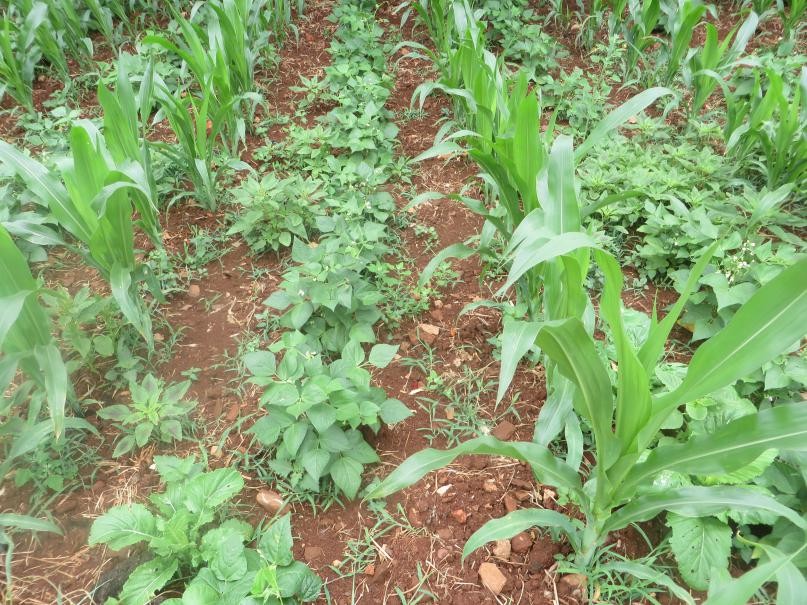 Intercropping is one way of reducing the use of pesticides and at the same time increasing income.
Intercropping is one way of reducing the use of pesticides and at the same time increasing income.
In May the project mobilized and trained farmers in Changjiaba Village about breeding of ducks and fish in rice fields. The project bought 752 ducklings which were bred over an area of 60 mu of rice fields. The project also bred 60 kg of young fish in a 3 mu area of rice fields as a pilot project which were provided by the project partner, Bureau of Science and Technology, Trade and Industry of Xundian Hui and Yi Autonomous County because they are in full support of this initiative. Furthermore Dr. Chen Anqing from Yunnan Academy of Scientific and Technical Information provided technical support to the project using his experience of breeding ducks in rice fields.
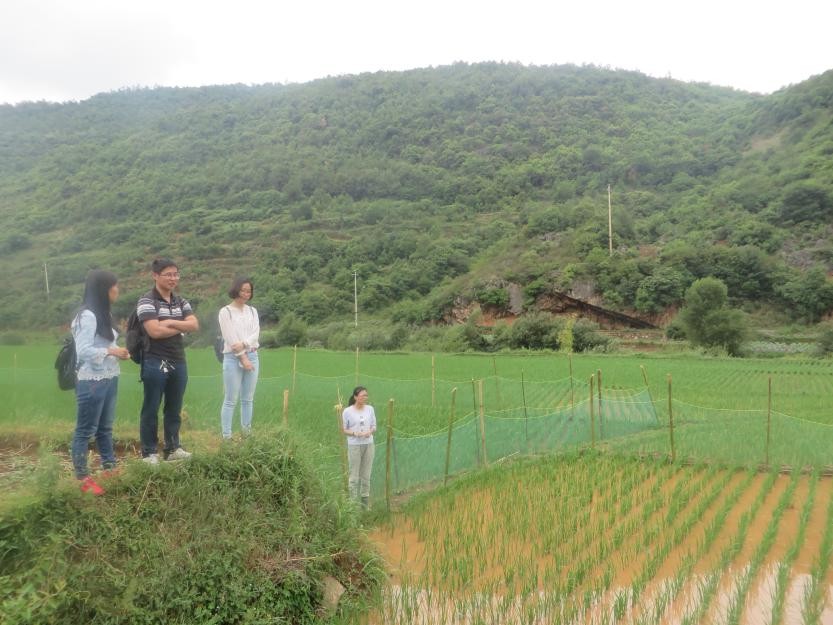
2 experts from the Yunnan Academy for Agricultural Science together with Project staff visit some of the farmers’ fields.
The project organized trainings for the farmers which were either on site trainings (Farmers’ fields) during monitoring and evaluation or organized trainings in the monthly Farmers’ Clubs meetings. The training content included techniques of precise and quantitative rice cultivation, intercropping, breeding of fish and ducks in the rice fields, climate change in relation to agriculture and environmental protection. In order to boost rice yield and to reduce methane emission from the rice fields the project trained and mobilized farmers on how to plant rice using the precise and quantitative rice cultivation technique. 156 households were interested and they adopted this method and used it in planting their rice and they in total planted 240 mu using free seed provided by the project. Prof. Yang Cangdong, an expert in precise and quantitative rice cultivation, was invited by the project team to give onsite trainings and expert advice to the farmers during rice cultivation. The project team also invited another expert Mr. Zhao Xu, from Agriculture Bureau of Xundian Hui and Yi Autonomous County, to provide training to the farmers during the whole rice cultivation period. Under his guidance, farmers managed their rice cultivation in a better way.
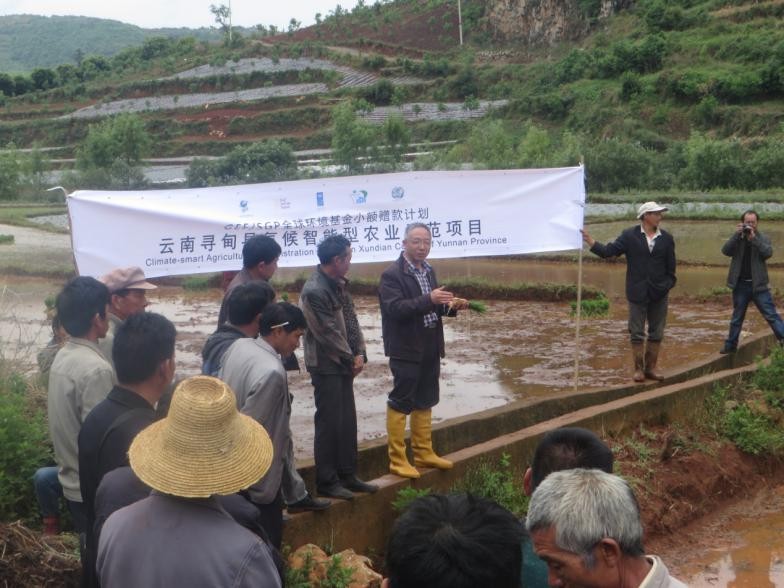
Expert training and advise helps the farmers succeed in precise and quantitative rice cultivation.
On the other hand 200 households were mobilized and supported by the project to use the method of intercropping and the method was used in planting 200 mu of maize and red kidney beans. This will help to increase the farmers’ income and also reduce the use of pesticides. 52 training sessions were carried out this half year of 2017 and 1 696 farmers participated in the trainings. The project also supported breeding of 6 sows in Nuoji village. Farmers in Changjiaba village were actively involved in the construction of drinking water pools and after the construction both 62 families and their livestock benefitted.
Farmers are developing a deeper understanding that environmental pollution is mainly caused by too much use of chemical, fertilizers and pesticides. By accepting the trainings and initiatives proposed by the project it shows that they are eager to do everything possible to be part of the fight in reducing the use of chemicals and also to improve their productions. They have taken the initiative to control diseases, insect pests and weeds via biodiversity applications such as breeding ducks and fish in rice fields so as to protect the local environment.
The farmers understand very well that use of chemicals and fertilizer contributes to pollution of the environment.



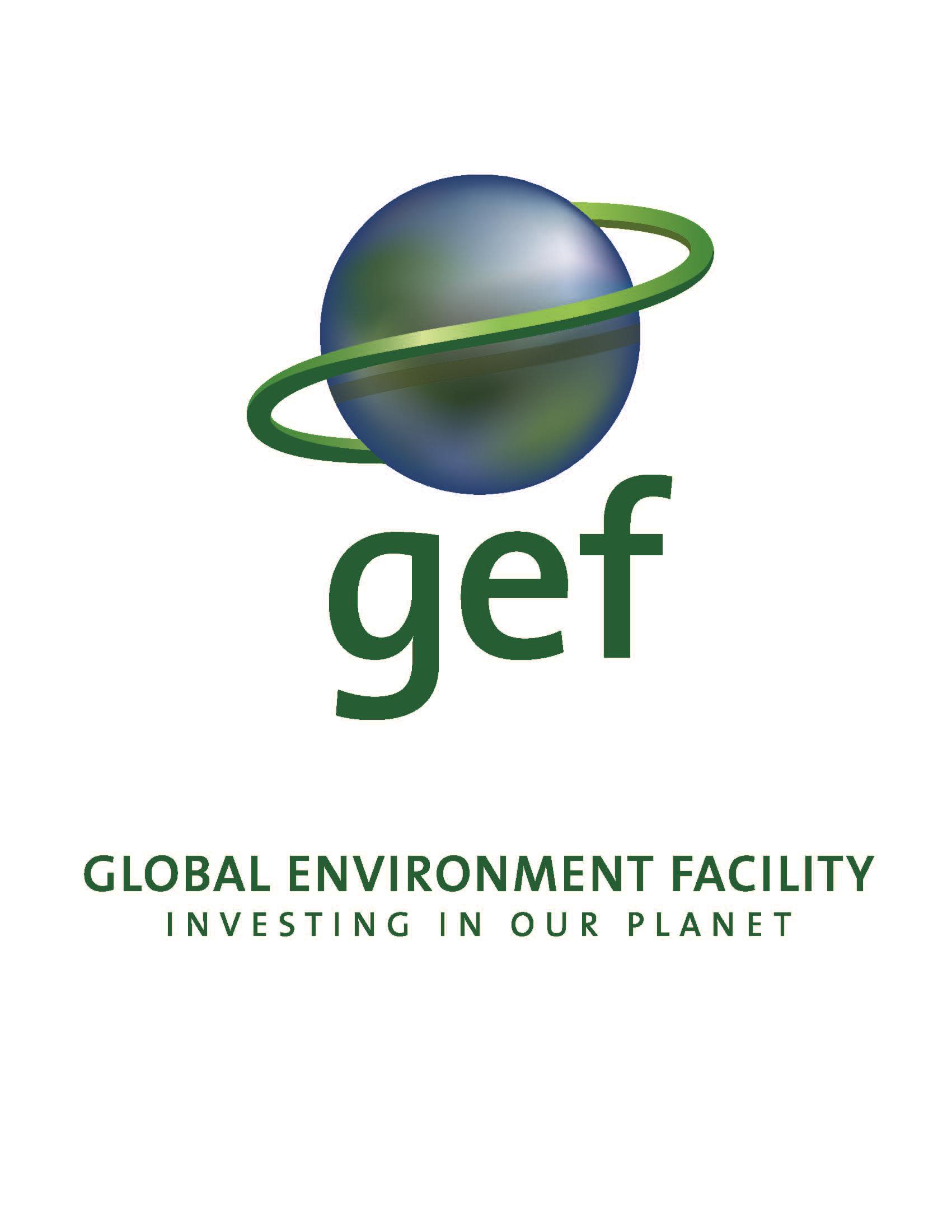
This project is funded by Global Environmental Facility /Small Grants Program.
Contents in this article reflects only the views of the authors and not those of the funder.